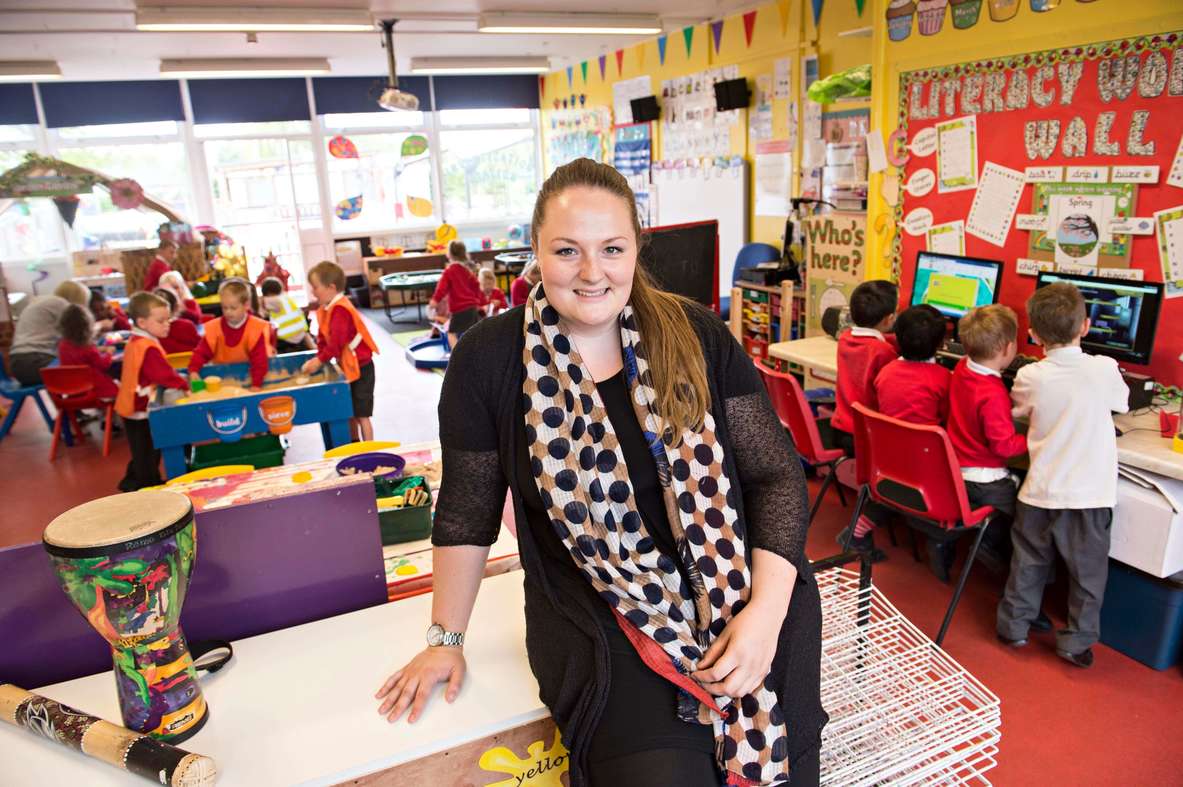
Education (EdD)
Professional Doctorate
- Research Institute
- Humanities and Social Sciences
- Duration
- 4-8 year part-time course, usually completed in 6 years
- Starting date
- October 2024
Summary
Professional Doctorates at Keele provide rigorous, structured programmes of advanced study and research, equivalent in status to a PhD but usually taken on a part-time basis and reflecting professionally focused contexts. They are normally completed in 6 years part-time.
The EdD has one entry point a year, in October.
Student testimonials
Overview
The Education (EdD) professional doctorate is a programme specifically designed for professionals - policymakers, leaders and managers, academics and teachers - at all levels of education, from early childhood through further and higher education, to those involved in lifelong learning. A professional doctorate provides a rigorous programme of advanced study and research, and is equivalent academically to the purely research-orientated PhD.
Programmes are delivered using blended face-to-face and online means, as students are usually in full-time work whilst on the course. The Doctorate in Education is a 4-8 year part-time course, normally completed in 6 years. During the first two years, students take taught modules with assessments that are designed to explore and structure the research project. After successfully completing these assignments, students undertake their research project under the guidance of supervisors. The final degree is awarded on the successful submission and examination of a thesis (of 60,000 words) in the same way as for a PhD.
Specifically, the EdD aims to:
- Promote an understanding of research evidence and methodologies relevant to professional practitioners
- Develop a critical awareness of the policy context in which professional practice takes place
- Enable participants to undertake a research study of relevance to their professional activities.
"Blow the dust off your brain, practice your theories and theorise your practices with this challenging, stimulating and thought-provoking programme." Visit the testimonials tab to read more.
Course content
The Professional Doctorate programme is assessed via taught modules for the first two years ending with a doctoral progression panel. These taught modules are as follows:
The first year: discipline-specific m.level modules
In this year, students will take Masters modules from the MA Education and/or the MRes as appropriate, depending on their research training needs and specialisms. The decision about which are the most appropriate modules for each student will be made at interview prior to admission.
These modules (which are subject to change) include:
| Module Title and Code | Credits |
|
Approaches to Research Design and Process (GRT-40023) |
15 |
|
Philosophy of the Social Sciences (SOC-40014) |
15 |
|
Using Theory in Social Science Research (GRT-40026) |
15 |
|
Qualitative Research Methods (GRT-40021) |
15 |
|
Quantitative Research and Data Analysis (GRT-40020) |
15 |
|
Reflecting on Practice (EDU-40114) |
30 |
|
Issues in Inclusive Education (EDU-40118) |
15 |
|
Global Education Issues (EDU-40100) |
15 |
|
Education, Employment and Professional Identity (EDU-40122) |
15 |
|
Global Citizenship Education (EDU-40120) |
15 |
The second year: generic research training modules
Students who have already successfully completed a Masters level qualification in a relevant discipline and have been admitted via the existing Advanced Standing route will begin at this point.
EDU-50003 Methods & application: designing and carrying out a pilot study (30 credits)
This module addresses issues about research design and analysis with an emphasis on qualitative and ethnographic perspectives. Students consider the ethical issues entailed in designing and conducting various forms of enquiry, such as narratives, life histories, auto/biographies, case studies and other qualitative or ethnographic methods. The module also explores the political and social contexts related to the research process and analysis, and aspects of the research process such as the researcher's own reflectiveness and issues of informed consent.
The assessment (6,000 words) requires students to critically discuss the research methods and strategy that they plan to adopt in their thesis, to carry out a pilot study testing aspects of this design, and to report on and evaluate the conduct and findings of that pilot study.
Students are encouraged to design the pilot study to be carried out in the same organisation where they will do the main study. The pilot helps students to identify research questions for the main study, to improve on areas of the research design, or even re-formulate the focus for the doctorate research, and to practice presenting the research plan for ethical approval.
EDU-40107 Preparing a thesis proposal (60 credits)
This module is currently taught in two parts:
(i) Preparing for thesis progression.
The first part of the module helps prepare students for their overall thesis by drawing together issues about the entire research process: theory, methodology, research design and analysis. It also helps to prepare students for the distinct elements of assessment for this module, which are:
a. Submission of a written thesis proposal (10,000-words)
b. Presentation of this proposal (accompanied by a 2,000-word summary) in front of a panel of assessors
(ii) Thesis progression panel
In the second part of the module, after the written thesis proposal has been read by two assessors, students give an oral presentation of their plans for the thesis as the final summative assessment on the taught programme. The panel then asks the candidate questions about their thesis plan and makes a decision on whether or not the candidate has the required skills and knowledge to proceed to the thesis stage (based on both the written proposal and its oral presentation, including the candidate’s ability to answer questions). This assessment, and recommendation, is the final assessment on the taught part of the programme.
Entry requirements
A candidate for the EdD should:
- Usually hold a Masters Degree from this University or of another deemed equivalent; and,
- Hold that qualification normally in the general field of education, policy and/or management and/or social sciences or it's equivalent in professional experience and a professionally accredited programme; and,
- Have access to email and the internet for the e-supported parts of the programme.
*Applicants without a Masters degree will be considered on a case-by-case basis, where they can provide evidence of relevant professional experience or other experiential prior learning.
There is no deadline for applications but you are strongly encouraged to apply before 1st August to secure your place and to receive the preliminary course information.
Contact details
Contact: Programme Director, Dr. John Howlett
Telephone: +44 (0) 1782 734151
Email: j.howlett@keele.ac.uk
Testimonials
'This is a high quality programme that makes a major contribution to students’ academic and professional development.'
Professor James Avis
(previous) EdD and DBA External Examiner
'I congratulate the programme team on the success of this very distinctive professional doctorate. The students that are recruited have an invaluable opportunity to develop their professional awareness and understanding and are able to relate this to their own biographies.
I wish the course continuing success in the future, it has been a valuable experience of me, and I will be pleased to think that I have played some small part in the development of the programme over recent years.
I continue to be deeply impressed by this programme and the obvious dramatic effects it has on students, as well as by the quality of work that is produced.'
Professor Ian Menter
EdD External Examiner 2007-2010
"I have found my first year of the EdD to be challenging, demanding and extremely stimulating, I have moved forward in many ways, personally and academically. The personal support offered by [tutors] has given me the confidence to believe I can achieve success in what I perceive to be the most challenging period of my career to-date."
- A Senior Lecturer in IT
"A thoroughly enjoyable, yet challenging experience. I look forward to our Course Sessions and personal supervisor support meetings. I feel my work is enthusiastically received and feel welcome amongst an emerging community of researchers and scholars. Life will never quite be the same for me. Through the EdD I have come to learn how to connect more closely with work colleagues and students and respond more appropriately to the many adverse pressures threatening to affect the quality of my work."
- A Principal Lecturer in Accounting and Ex-Head of Department.
"Blow the dust off your brain, practice your theories and theorise your practices with this challenging, stimulating and thought provoking programme."
- A Senior Tutor at a College of Further Education
"The programme is making me read, and reflect on, theories and their application in professional practice, in ways for which I have previously not made time. It is demanding, mostly because of the time needed when the day job is more than full time. But it's also worth it, and already paying dividends in the way work looks at me and vice versa."
- A County Manager for Educational Standards
"I am so glad I chose this programme as I am really enjoying the opportunity to explore all these issues."
- A Senior Lecturer in Human Resource Management
Expertise
Areas of expertise and research interest
Keele especially welcomes applications from doctoral students interested in researching the following areas of educational policy and practice: international education and higher education, critical policy analysis, educational 'capitals', inclusion, identity and belonging, stereotyping, aspirations and attainment, policy and practice, the history of education in Britain, critical pedagogy, progressive education, secondary education, educational and higher educational finance, markets and marketisation.
Find out more about the course
Meet the staff of our Professional Doctorate in Education (EdD)




